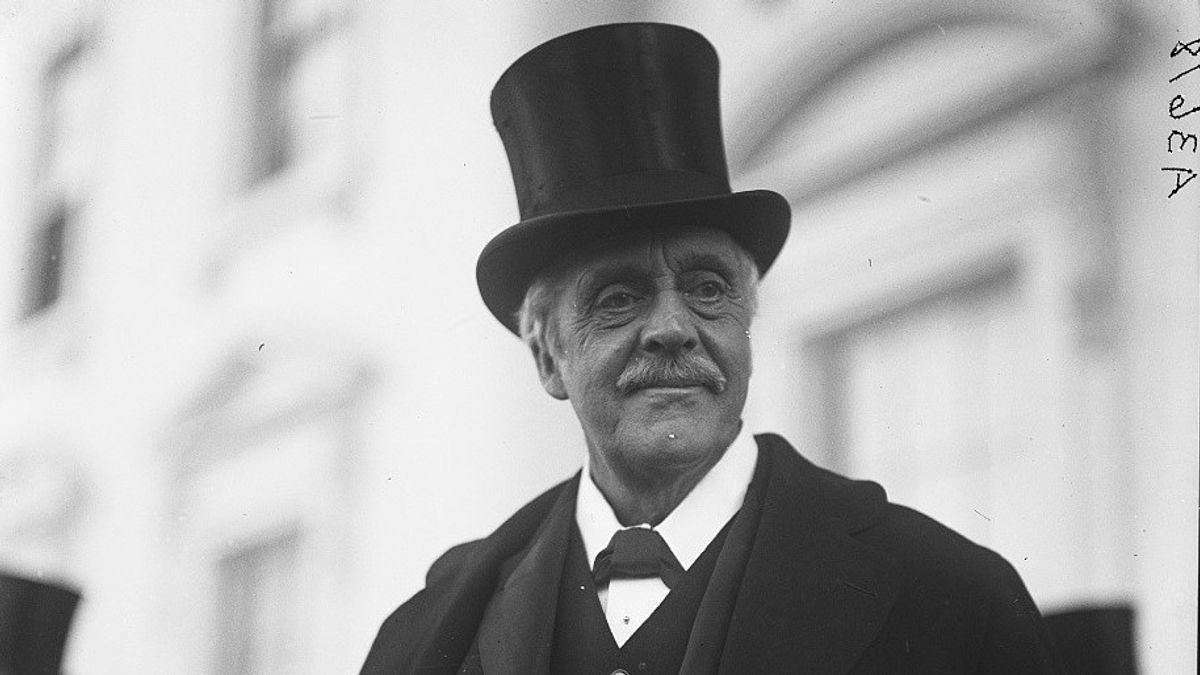JAKARTA - Today, November 2 more than a century ago or in 1917, Britain declared its support for the construction of houses for Jewish people in Palestine. The concession that became the embryo of the Balfour Declaration was considered to have benefited the Jews a lot but at the expense of the Palestinian people.
British support was sparked in a letter written by British Foreign Minister Arthur James Balfour to Lionel Walter Rothschild, a leader of the Anglo-Jewish community. The support then became a debate.
The statement in the Balfour Declaration contradicts the Sykes-Picot Agreement - a secret convention between Britain and France - and the Ḥusayn-McMahon Correspondence --the exchange of letters between the British high commissioner in Egypt, Sir Henry McMahon and Ḥusayn ibnʿAlī. In short, the difference in understanding between these agreements in turn creates conflict.
To quote Britannica, Monday 2 November, the Balfour Declaration was issued through the continued efforts of Chaim Weizmann and Nahum Sokolow, who are the Zionist leaders in London. However, at that time the Balfour Declaration did not meet the expectations of the Zionists who demanded the reconstitution of Palestine as the "national home" of the Jews. The declaration specifically stipulates: not to take any action that can harm the civil and religious rights of the non-Jewish community in Palestine.
However, the declaration did not mention the political or national rights of each community. Thus the Balfour Declaration aroused hope among Zionists and appeared to fulfill the aims of the World Zionist Organization.
The British government hoped the Balfour Declaration would gather Jewish opinion, especially in the United States, on the side of the Allies against the Central Powers during World War I (1914–1918). They also hoped that pro-British Jewish settlements in Palestine could help protect the British approach to the Suez Canal in neighboring Egypt and thus ensure an important line of communication to British colonization in India.
Sacrifice PalestineThe Balfour Declaration was supported by the main Allied powers and was included in the British Mandate of Palestine. The mandate was formally approved by the new League of Nations which was formed on 24 July 1922.
In May 1939, the British government briefly changed its policy of Jewish occupation by limiting 75,000 immigrants and would end immigration in 1944, unless the Arab Palestinian population in the region did not object. However Zionists condemned the policy, and accused the British of favoring Arabs.
Although this policy was debated until the outbreak of World War II, in the end, the Jews succeeded in establishing the State of Israel in 1948. The British Mandate became the ticket for Jews to build their own state, at the same time sacrificing Palestinian Arabs.
To quote Al Jazeera, the Balfour Declaration is widely seen as the cause of the 1948 Palestinian Nakba, when the British-trained Zionist armed group forcibly evicted more than 750,000 Palestinians from their homeland. Although some opposition had predicted such a thing might happen, the British government insisted on issuing the declaration.
It is difficult not to think that the Balfour Declaration created conditions for the Jews to gain superiority in Palestine. This minority group has also succeeded in building a state for their own nation at the expense of the Palestinian people.
The English, Chinese, Japanese, Arabic, and French versions are automatically generated by the AI. So there may still be inaccuracies in translating, please always see Indonesian as our main language. (system supported by DigitalSiber.id)









